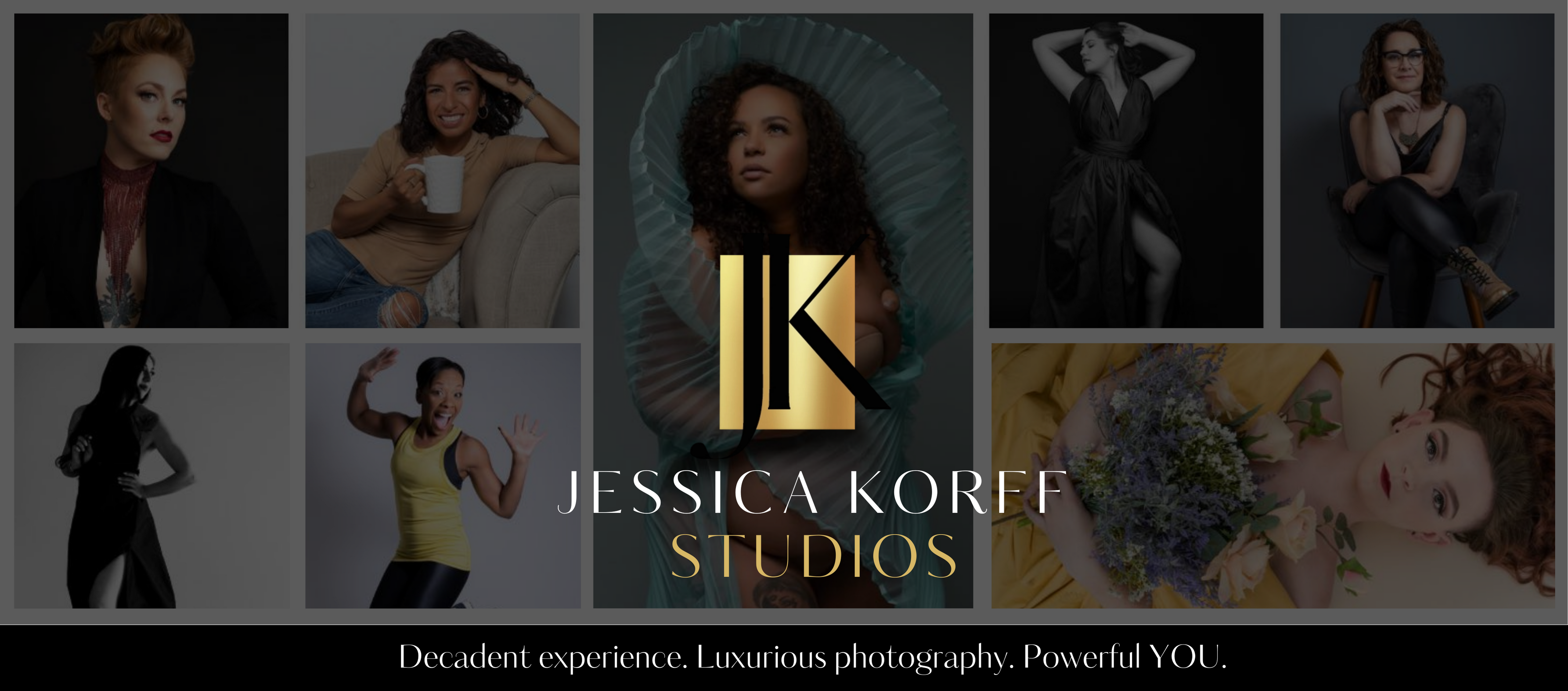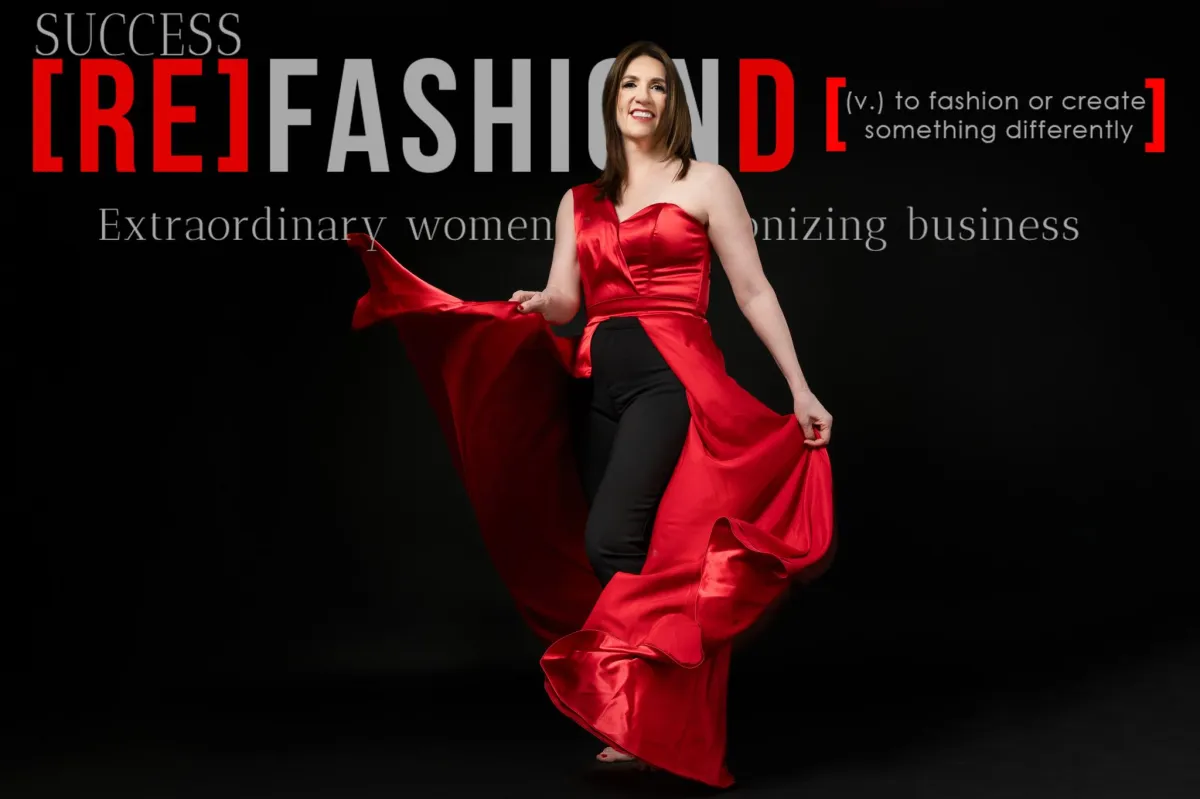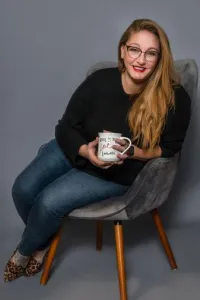
Blog

Success REfashiond Icon | Magdalena Verdugo
Success REfashiond Icon | Magdalena Verdugo
It's crazy to me that we are already in November! Today I am so excited to share with you our next REfashiond Icon! -- Magdalena! If you have spend any time with her you have felt her warmth! As you will read below, She was the first of her family to go to college, 1 of 5 children (the only girl!), and the daughter of migrant farm workers . Her experiences have led her to her passion and to making big strides in our community as the CEO of YWCA. She works to help create the space for women to find their inner voice, self-worth and confidence while they focus on a mission of eliminating racism, empowering women, and promoting peace, justice, freedom and dignity.
Please read on to learn all about the amazing things she is up to here in our Tucson community.

Interview with Magdalena Vertigo
Jessica: What does RED symbolize for you?
Magdalena: Red is a beautiful, powerful color that gets you noticed. When I want to get noticed, I wear power red - I wore red for my wedding dress when I married my current husband - or I wear a splash of red, like my red shoes. For me, red also connects me to my culture. I am a proud Mexicana, and wearing red helps me embody the strength of my heritage in a visual way.
Jessica: What does Success REfashiond Mean to you?
Magdalena: It’s being authentic, showing up with the best of me. It’s knowing that I get to decide how I show up and that gives me the confidence to be who I am in the fullness of my identities. I can be a woman in a position of power and leadership with a strong cultural identity. When someone comments on my accent, I feel proud, because I have the privilege of knowing two languages. Being rooted in my heritage in this way means that the way I show up and how I do my work is for the good of the community, the larger group, and knowing that I get to be in the spaces I am in because of the strong women who came before me. This shows up in what I wear, how I speak, and how I participate and engage with those around me.
Jessica: Tells us about you.
Magdalena: I feel that I’m a very confident individual, proud of who I am, but I haven’t always been that way. I’ve evolved through time and through learning experiences. I think sometimes people perceive me as being intimidating because I’m a confident woman in a position of power, but when people get to know me as a person, they see that we share common experiences - as BIPOC women, mothers, wives, daughters, sisters, leaders. I am the daughter of migrant farm workers, the oldest of 5 kids and the only girl. I was the first in my family to go to college. I have been married twice and am mother to two wonderful kids - a daughter and a son - and am stepmom to two sons with my wonderful husband. All the kids have made it through high school and are pursuing their own dreams. I am also very committed to and thoughtful about how I take care of myself. My mother instilled this in me at a young age. I love yoga and doing things that get my body moving. I love learning from others, and I love reading, whether it’s a self-development book or “brain candy” novels with juicy characters so that I can escape reality for a while. When I share my identities, it is to inspire and influence other women, including my daughter, your daughter, their daughters, and the women that I serve through my work, that as women we can be so many different things.
Jessica: Tells us about what you do.
Magdalena: My work title is CEO of the YWCA of Southern Arizona, but what I do in that job is so much more. I love what I do because I get to create and set the platform for other women to succeed, to find their inner voice, self-worth, and confidence. Where I thrive the most is in relationships, especially with other women, many of whom opened doors for me and helped me learn and succeed. I have always loved networking and building community, and now I get to do this for my job which is so inspiring for me. Of course as a CEO, there’s always the technical part of the job - budgets and strategy and such - but the most exciting piece for me is that I get to be creative and innovative in how we enact our mission of eliminating racism, empowering women, and promoting peace, justice, freedom and dignity for all.
Jessica: Why is the work you do so important?
Magdalena: In my culture, we have always known that women play an incredibly important role in the family, but women have not always been seen as having that same level of importance outside of the home. I get to help show that women are just as important and powerful in public spaces - in the workplace, in the community, and in positions of leadership. I get to help elevate women, and shine a light on how we get $%it done. And, this work is important because so many disparities still exist - disparities in pay, in health care and reproductive rights, in division of labor, so this work calls attention to these disparities and mobilizes women and allies to find creative solutions to close these gaps. My approach is very much part of the “people-first” approach, which applies both to the people I lead and to those we serve. We want to help women build knowledge, because knowledge is power, and having that power means that women have more choices and can make informed decisions about what success means to them.

Jessica: What's a common myth about your industry?
Magdalena: There is a problem in the nonprofit sector which is that many nonprofits have a deficit-mindset. Nonprofits are always scrambling to raise funds, always asking for handouts, and that working in nonprofit, people have to just accept that they will make less money than working in the corporate sector. Social justice work is very important - it addresses the disparities that the capitalist system creates - and yet it is relegated to that place of deficit as part of the nonprofit sector. What I can do to debunk it is to first name it, acknowledge it, and then influence how we shift culture towards an asset-based mindset and approach within my own organization and the spaces in which I have power. This means believing that first of all, we are enough. As a staff of primarily women/women-identifying, we must embody an asset-based mindset in the way we approach our work, because society already wants to keep us down. This means not only knowing that the resources are out there and that with relationship-building and strong strategy, we can secure the resources that we need to fulfill our mission, but also making sure that our staff has what they need to thrive in their own lives - a thriveable wage, robust PTO, flexible schedules, and opportunities for both personal and professional development.
Jessica: Do you feel like your industry is male dominant? If so, has there been improvement in this area in recent years? why?
Magdalena: In the nonprofit sector, I believe that it is still male dominant. Even though so many women work in the sector - as administrative support, fundraisers, program managers - leadership is still very male-dominated, both in demographics and in how the culture and systems of the sector are perpetuated. In 2020, we had a huge shift of women stepping into leadership positions. Women ran for political offices all over the U.S, and in Tucson we elected our first Latina mayor, but we are still behind on compensation compared to our male peers. Men are taught that they can ask for anything and they will receive it, while women are more likely to accept lower pay because we are taught by society that we are not enough, so we should just take what we’re offered and not ask for what we really want. I hope that we are making strides, not only in compensation equity, but also in how we engage with personal and professional development opportunities.
Jessica: What are some steps that individuals or society could take to support creating more gender balance in the future?
Magdalena: If you have a habit, or something you want to change, you first need to acknowledge the reality of the situation. Once we acknowledge that gender-based disparities exist - which we are starting to do as a culture but are still in denial in many ways - then we can move into the “how” of how to address it. Our YWCA is doing this by launching the Dr. Laura Banks-Reed Center for Gender & Racial Justice, which will be addressing gender and racial disparities and coming up with innovative ways to address the problems. We also need our male allies to step up, speak out, and take action along with us. To not be afraid of sharing power and supporting women as they step into leadership roles.
Jessica: Who are 2-3 women who made huge influences on your life?
Magdalena: First, of course, is my mother. She influenced me by not only speaking, but also doing and showing for me. My parents were migrant farmworkers, so we often didn’t have much, but what we did have we shared. Our home was always open to family and community, so even if it was a simple meal of tortillas, beans and rice, we were glad to share because we were grateful to have what we did. My mother showed me this generosity through the way she opened her heart and home to the community. Another influential woman was the first boss that I had at my last job. I learned so much from her. She loved to use analogy and metaphor to make a point, like “Be careful whose toes you step on today because they may belong to the ass you have to kiss tomorrow”, which is funny, but she taught me how impactful that form of communication can be. She was also an amazing speaker and taught me how as leaders, we can be courageous in how we use our voice for those who have none. Finally, the stories of the women who we serve - their challenges, struggles, resilience, and triumph - really influence how I respond and move through the world. They offer so many diverse and important perspectives, and that reminds me that I still have a lot of learning to do.
Jessica: What was a struggle you remember facing when you began?
Magdalena: Something that I learned early on is that I couldn’t do this work on my own. I had to build a network and really focus on what it meant to be in relationship and partnership with others in the community. I have also learned to be discerning about who I rely on in my inner circle, because even with endless optimism, the reality is that not everyone is in it with the same values, and that can be hurtful.
Jessica: What was a moment where you felt like you had to be brave? Something that was scary for you, but you got through it anyway?
Magdalena: Any time that I am faced with change - personally or professionally - it is scary. I have been through divorce, being the first in my family to go to college, job changes, stepping into leadership positions - really scary stuff - but I always believed deep inside that I could do it, that I could get through. This is in large part because other women have been role models for me, so when these life changes come up, I seek out the resources and relationships that gave me the courage to take steps into the unknown.

Jessica: What is your biggest accomplishment?
Magdalena: Realizing that I can trust my gut. I have many big accomplishments - my children, my job - but for me the biggest accomplishment is knowing that I am enough, I have good instincts, and I can trust my gut. Sometimes I wish I’d had this knowledge long ago, but as with all of us, I had to go through life’s experiences to learn to use my intuition, and to trust in myself enough to use it.
Jessica: What do you wish you had known when starting out?
Magdalena: I wish I’d had the confidence to know that I had what I needed all along. That I have discernment, and intuition. I’m also embracing the knowledge that I have these things now, at this time in my life. Even though some experiences I’ve had have been devastating and painful, I’m grateful for what I’ve learned.
Jessica: If you lost everything and had to start over with your business, right now in a new place, what are the first things you would do to build your business?
Magdalena: If I lost everything, I would turn to my people, my family, community, and networks. I would continue to be involved and participate in the community, because that is ultimately who would lift me up, just as I would do for others as part of my role in the community.
Jessica: What is your favorite quote?
Magdalena: There is something I’ve been saying to my staff recently, which is that “I will never ask you to go where I’ve never been, or to do what I’ve never done.” which is really to say that I support my staff and that when we walk together in our effort to build a better future for us all, anything is possible.
Jessica: What are you curious about right now?
Magdalena: You know, the first part of the YWCA’s mission “eliminating racism and empowering women” is easy to grasp, it’s easy to see how we work towards those things. But the last part, “promoting peace, justice, freedom and dignity for all”, makes me want to go deeper. I am curious about how we engage with those goals and how they intersect. In such a divisive world and culture, how are we promoting freedom and justice in a peaceful, dignified way? How can we be passionate and peaceful, when passion is sometimes translated as aggression? So those are the things I’ve been curious about.
Jessica: Do you have a favorite local restaurant?
Magdalena: I love Pure Love Juice at St. Philip's Plaza and my favorite dish is the protein acai bowl. When I eat it, I feel like I’m putting something good into my body. I also like to support it because it’s a local Latina-owned small business.
Jessica: If your best friend was visiting Tucson for the first time, what other favorite local places or hidden gems would you take them to?
Magdalena: Weather permitting, we would go on walks around Tucson, to the Sonoran Desert and downtown to see the shops and restaurants. I would have them join me on my favorite workouts, grab a cup of brew at my favorite local cafes, and eat at my favorite Mexican food restaurants.
Jessica: What's your hype song?
Magdalena: Selena’s “Como Una Flor”, I love the beat mostly, and a huge supporter of the artist, who we lost to a tragedy. The song speaks to the loss of love and admitting to hurting, being human. For me it speaks to resilience in the midst of pain.
Jessica: Do you have a favorite word? What is it and why?
Magdalena: My favorite word lately has been beautiful/hermosa. Those words just make me feel good when I hear them, and when I say them to myself or others. I love it because it’s warm and feminine - I use it with others like “Hey hermosa!” because I want and hope they will feel that same energy.
Jessica: If you could have one superpower what would it be?
Magdalena: I wish I had the ability to rewind time. I don’t have regrets, but there are some things I would do differently, especially in situations where I said or did something hurtful to someone else. I wish I could go back and use different language.
Jessica: Tell me something that's true that almost nobody agrees with you on.
Magdalena: That it’s ok to be imperfect. Society tells us, especially as women, that we need to be perfect in every way, in so many ways. But I love that we’re human, we have emotions, we’re all scared sometimes. I think we’re still in a place where we don’t recognize and accept our faults as humans, and that’s ok too, but I love that we are all imperfectly perfect.
Jessica: Tell us about your awards, accolades and notable mentions!
Magdalena: I was named 2022 Hispanic Businesswoman of the Year by the Tucson Hispanic Chamber of Commerce, and recipient of the Orgullo honor (Proudness Award) by Valle del Sol in 2021.
Jessica: Where would you like people to go to find you or find out more about what you do?
Magdalena: https://www.ywcatucson.org/
Creative Credits:
REfashiond Icon: Magdalena Verdugo
Photography by Jessica Korff Studios
Makeup by: Renee Lanz | Radiate with ReneeJ
Dress Draping: Red dress draped and created by: Jessica Korff
